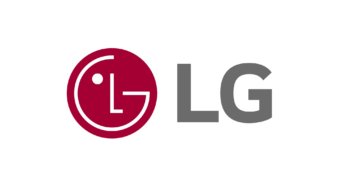Nigeria’s ambition to close its digital divide has been thwarted by policy inconsistencies, poor coordination, and political interference, leaving over 136 million citizens without adequate broadband access.
Of the estimated 220 million Nigeria’s population, data showed that only 38 per cent of that figure have access to the internet, suggesting that about 136 million are still enduring limited telecommunication services, while the country’s broadband penetration rate has dipped below expectations.
The Universal Service Provision Fund (USPF), established by the federal government to provide affordable telecommunications services in rural and underserved areas, was expected to solve this challenge. Managed by the NCC, the fund was designed to finance the deployment of ICT infrastructure in hard-to-reach regions, ensuring equitable access to technology.
To implement its objectives, the NCC licensed Infrastructure Companies (InfraCos) to deploy fiber infrastructure nationwide. However, seven years after the first licenses were issued, progress has been slow, and the gap in broadband connectivity persists.
InfraCo Nigeria Limited, licensed in 2016 for Lagos, and Brinks Integrated Solution Limited, licensed in 2018 for the northeastern states, have made little progress in rolling out infrastructure. Other licensees, including Fleek Networks, Raeanna Nigeria, Oodua InfraCo, and Broadbased Communications, have also underperformed, leaving many rural areas without connectivity.
This lack of progress has had tangible consequences. The NCC had projected broadband penetration to reach 50 percent by the end of 2023. However, the actual figure was 43.71 percent and by September 2024, penetration had dropped further to 41.56 percent.
Executive director of Paradigm Initiative, Gbenga Sesan, criticised the USPF for its inability to meet its goals. “The fund was designed to empower InfraCos and drive nationwide broadband coverage, but delays in policy implementation and poor coordination with the NCC have hindered its success,” he said.
Sesan also highlighted political interference as a major issue. “Funds meant for infrastructure development have been diverted for political purposes. Instead of building connectivity infrastructure, money was used to buy computers for political constituencies, and the USPF secretary faced undue pressure to comply with political demands,” he explained.
Some telecom operators have argued that rural markets are unprofitable, but Sesan disagreed. “If people in these areas are making phone calls, there is a market. The issue lies in unclear policies and a lack of enforcement to encourage investment,” he said.
Policy advisor and founder of Science, Technology, and Innovation, Jide Awe, proposed solutions to encourage private sector participation. “The government must offer soft loans as incentives and ensure the fund’s transparency to attract more players. They also need to publicize the availability of this fund so that stakeholders can take advantage of it,” he said.
Despite the setbacks, Sesan remains hopeful. He pointed to regional initiatives within the ECOWAS region as examples of how coordinated efforts can strengthen ICT infrastructure and enhance resilience. He urged urgent policy reforms to revitalize the USPF, bridge Nigeria’s digital divide, and unlock the untapped economic potential of rural areas.
As the global economy becomes increasingly reliant on technology, Nigeria cannot afford to lag behind. Bridging the digital divide is no longer just an infrastructure issue—it is an urgent national priority.
Stakeholders agreed that with robust policies, transparency, and targeted incentives, the country can achieve universal broadband access and empower millions of underserved Nigerians. According to them, “For a nation with over 100 million citizens still disconnected, the stakes are high. The time to act decisively is now.”





